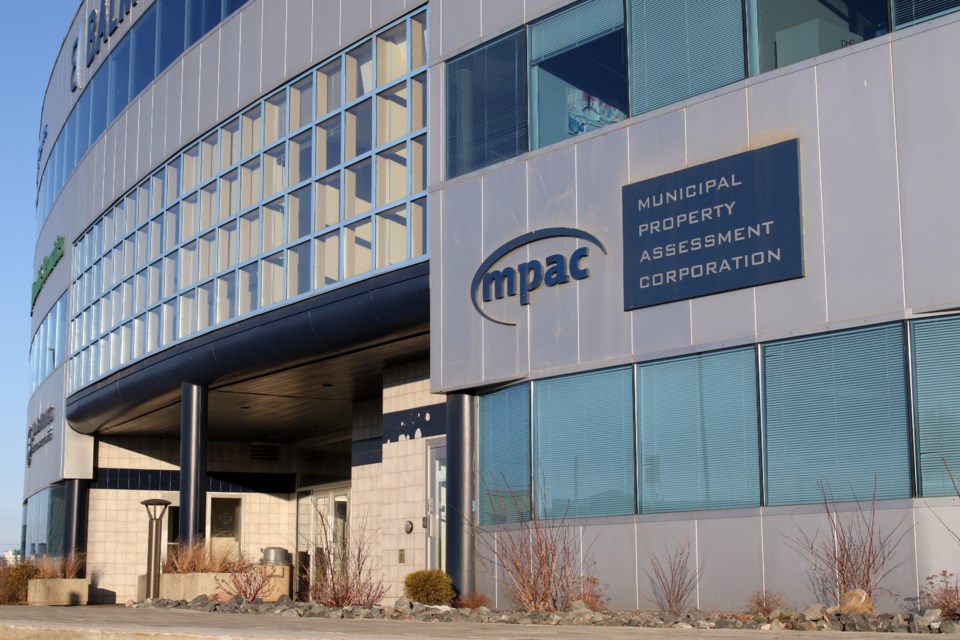The Municipal Property Assessment Corporation (MPAC) oversees and evaluates millions of properties across Ontario, and the organization gave a presentation to city council this week to explain how it all works.
A key facet of the work done by MPAC is determining the value of properties throughout the province, which, in turn, helps municipalities determine property tax rates.
“Our job is to assess and classify more than 5.5 million properties across Ontario, with a combined value of more than $3 trillion,” said Nicole LaFrance, MPAC account manager.
“Every municipality uses our assessments to make informed decisions about their community, including the distribution of property taxes. Ontario's property tax system, and these assessments, generate approximately $30 billion dollars in tax revenue annually," she told city councillors.
When it comes to determining a property’s value, LaFrance said there are three standardized approaches MPAC follows.
“The first of these approaches is the direct comparison approach. With this approach, we analyze recent sales of comparable properties that were sold for similar or identical use to the property to be valued, and this is to provide an indication of value,” she said.
LaFrance said there are five key factors that largely determine a property’s value.
“When we're looking at a valuation of a residential home, although our analysis tool considers over 200 factors … five factors make up approximately 85 per cent of a typical home's value,” she said. “They include location, lot dimensions, exterior square footage, quality of construction of the home, and age of the property, which gets adjusted for any major renovations or additions that have occurred.”
Second, the income approach determines value based on how much revenue a property could generate.
“It's not the revenue being generated by the occupants, or rather the rent that the occupant is paying to the landlord, that we use to value properties using the income approach. This method requires a detailed analysis of income and expenses, both for the property being valued and other similar properties," she explained.
When a unique property that’s “rarely sold on the open market” needs a valuation, LaFrance said a “cost approach” is employed.
“As we cannot rely on either the direct comparison approach or the income approach to determine its current value, due to a lack of data, the cost approach is a three-step process,” she said.
“First, we calculate the cost of replacing building structures or other assessable fixtures on the land. Then we apply a deduction for depreciation on all structures due to age, as well as any functional or economic adjustments, and finally we determine the value of the land and add it to the building calculations to produce an overall valuation," said LaFrance.
Ontario properties are currently assessed at market conditions from Jan. 1, 2016, as the reassessment scheduled for 2020 was postponed by the pandemic.
"MPAC continues to maintain and update the assessment to reflect changes, such as new construction and improvements to properties for new buildings or structures,” LaFrance said. “MPAC determines the value as of Jan. 1 2016, to ensure equity when comparing to existing properties.”
In order to maintain Ontario’s property database, MPAC assesses new construction, additions, and renovations, addressing property owner inquiries, and occasionally updating all property assessments to a single legislative evaluation date.
“As you can imagine, maintaining Ontario's property database is very important. Property data is continuously updated so that municipal records are accurate when our municipal stakeholders are making important tax decisions,” LaFrance said.
While property taxes and property taxes are intrinsically linked, LaFrance said one does not directly determine the other.
“Assessments distribute taxes, they do not determine the taxes paid,” she said. “When a province-wide assessment update occurs, the most important factor is not how much the assessed value of a property has changed, but rather how the assessed value has been changed relative to the average change in class in that community.”
More about how property assessments impact tax rates may be found here.
Coun. Tim Lauer had concerns about whether the delay to the province-wide reassessment could cause issues when it eventually does occur.
“I'm just wondering if we're going to get ourselves into a situation, if we delay the reassessment long enough, that we might almost be into a phase-in, clawback kind of thing where people are getting too much of an increase at one time,” he said.
LaFrance said there will be increases across the board when a reassessment does occur, and that she would be happy to give another presentation when a new assessment date is determined.
Coun. Jay Fallis said he has heard concerns about residents having different property assessment values, despite living in very similar homes.
“Their feeling is that there's a significant discrepancy between what their’s is and what a neighbour's might be. It seemed like, in those interactions, the lots are comparable,” Fallis said.
Residents can review their assessments, as well as their neighbour’s at AboutMyProperty.ca, LaFrance said, and they can also reach out directly to MPAC.
“They can also contact us, and we can do a request for reconsideration, and we'll review their specific property, as well, and look at the neighbour’s, as well, and we can have a conversation with the property owner,” she said.
